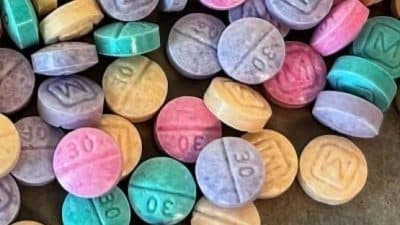What’s the Issue?

In the American conscience many health issues weigh heavily and drive innovation, creative thought, and problem solving across various markets. This is evidenced in the plethora of guides and thought-pieces that surge have surged the internet with the arrival of the new year–and all the health-minded resolutions that accompany it. One consideration that is oddly absent in these trends, however, is one of the most pressing health concerns in the world–perhaps due to this lack of awareness.
What is Kidney Disease?
Kidney disease is the unfortunate but all-too-common reality where the body is no longer able to filter the body’s waste through the kidneys at the level of efficiency needed in order to maintain healthy functionality. This level of efficiency drops off rapidly with the progression of kidney disease ending in renal failure (kidney failure), which is irreversible and requires physicians to intercede with either a kidney transplant, or lifelong reliance on dialysis. With such daunting health outcomes, it is strange indeed that more Americans are not aware of this disease.
The Stark Reality
Statistics from the United States Renal Data system show that 15% of Americans have kidney disease, a number that represents nearly 50 million Americans. Despite the size of the group of those afflicted with kidney disease, only about 10% are aware that they have the disease. This is due to the fact that the symptoms of kidney disease are notoriously hard to detect, and even more noticeable symptoms are easily confused with less problematic health issues such as dehydration or a poor diet. Kidney.org reports that kidney disease claims more lives annually than testicular cancer in men, and breast cancer in women.
Quick Facts
(United States Renal Data System)
- Kidney disease is the 9th leading cause of death in America.
- Every day more than 340 people begin treatment for kidney failure.
- Despite the horrific systems of advanced stage kidney disease, only a little more than half of individuals with stage 4 advanced kidney disease realize their diagnosis–57% up from 36% a few years prior .
- The cost of Medicare of individuals with chronic kidney disease and end-stage renal disease (ESRD) is a whopping $114 billion annually.
- Those with ESRD represent 1% of the medicare population but account for 7% of the budget.
- Those with ESRD are much more vulnerable to events which require emergency care averaging at 3 emergencies a year.
- From 2013 to 2016 the percentage of adults with hypertension who also had chronic kidney disease 31.2%.
- The percentage of adults with coronary artery disease is 37.9%.
- As of 2019 the number of kidney transplant candidates awaiting kidney transplant is 112,947.
- 11,949 kidneys recovered from U.S. donors in 2019.
- African Americans are 3.5 times more likely to have ESRD.
Nephrology: Prevention is the Only Solution
Kidney damage by and large is irreversible. A fact when combined with all the various ways for the kidneys to be damaged is a frightening reality. This is why that nephrology–the branch of physician science which deals with kidney functionality and disease–is gaining more attention in business and education markets. There is an increasing need for innovation and investment in new technologies for early detection of kidney disease and more convenient treatment options–considering dialysis treatments are a notoriously challenging form of treatment.
Nephrologists are the key player in preventing kidney disease, and yet historically they have been woefully understaffed workforce. The CDC reports that in 2013, there was only 1 nephrologist per 1,666 adults with advanced kidney disease in the United States. Thankfully this number has been on a steady incline every year since as Americans wake up to the looming reality of a kidney disease epidemic.
A study from the American Society of Nephrologists, however, indicates that there continues to be a widely reported difficulty in medical school graduates finding a satisfactory position within nephrology. Thus one of the most important counterbalances to the nephrologist workforce, which is reportedly unsatisfied and spread thin, is the development of new technology that might ease the burden on physicians.
Innovation, Technology, and Advancement in Nephrology
According to healthpeople.gov the presence of excessive protein in urine is the most prominent indicator of the kidney dysfunctionality that defines kidney disease. Healthcare tech companies Ethos Biosciences thus work on the cutting edge of nephrology research to determine the best methods for early detection of the indicators of kidney dysfunction, such as nephrine.
Nephrine is a necessary protein for the functioning of renal protection barrier, in other words it is a crucial component of kidney health. New developments in nephrine detection technology allows laboratories to reveal precursors and risks that have previously eluded traditional methods of early detection. Advancements in nephrine detection are key to improving prognosis of those afflicted with kidney disease and raising awareness in groups that might have missed their symptoms.
Nephrology and Raising Awareness
While early detection is one piece of the puzzle of preventing an all-out epidemic of kidney disease, the other piece is raising awareness. New laboratory testing technology may increase preventative measures, but many individuals will miss these opportunities if they do not know about them, or what needs preventing in the first place. Kidney disease is known as the “silent disease” for a reason and will require a boost in public awareness in order for the veil to be lifted.
One of the best segways for contextualizing need for awareness is discussing the number of commonplace activities which can accelerate or even cause kidney disease. Improper hydration for instance is a major precursor; what makes this a particularly problematic issue is that it occurs on both ends of the spectrum. In other words, too much hydration can be just as harmful as too little hydration.
An important note here as well is that kidney health is dependent on hydration though drinking clean water. Drinking fluids such as alcohol or energy drinks will tax your kidneys greatly, and often requires hydration to properly filter the waste products. Experts suggest that around 12-14 cups of water daily is recommended for most Americans–though the recommended amount varies (often lower) for individuals with kidney problems.
Another habit widespread among Americans that irritates the kidneys and can even facilitate acute kidney injury is that of medication. The widespread use of over the counter pain medicines (NSAIDS specifically) is reported to be a common catalyst for kidney damage. Many herbal supplements as well can tax the kidney. Alone these might not be of much concern, but if an individual practices improper hydrations and medication habits they could unwittingly induce the early stages of kidney disease. If believe yourself or someone you know is at risk, then do not wait–seek out a nephrologist professional as soon as you can, or order at home test kit if you favor convenience.










